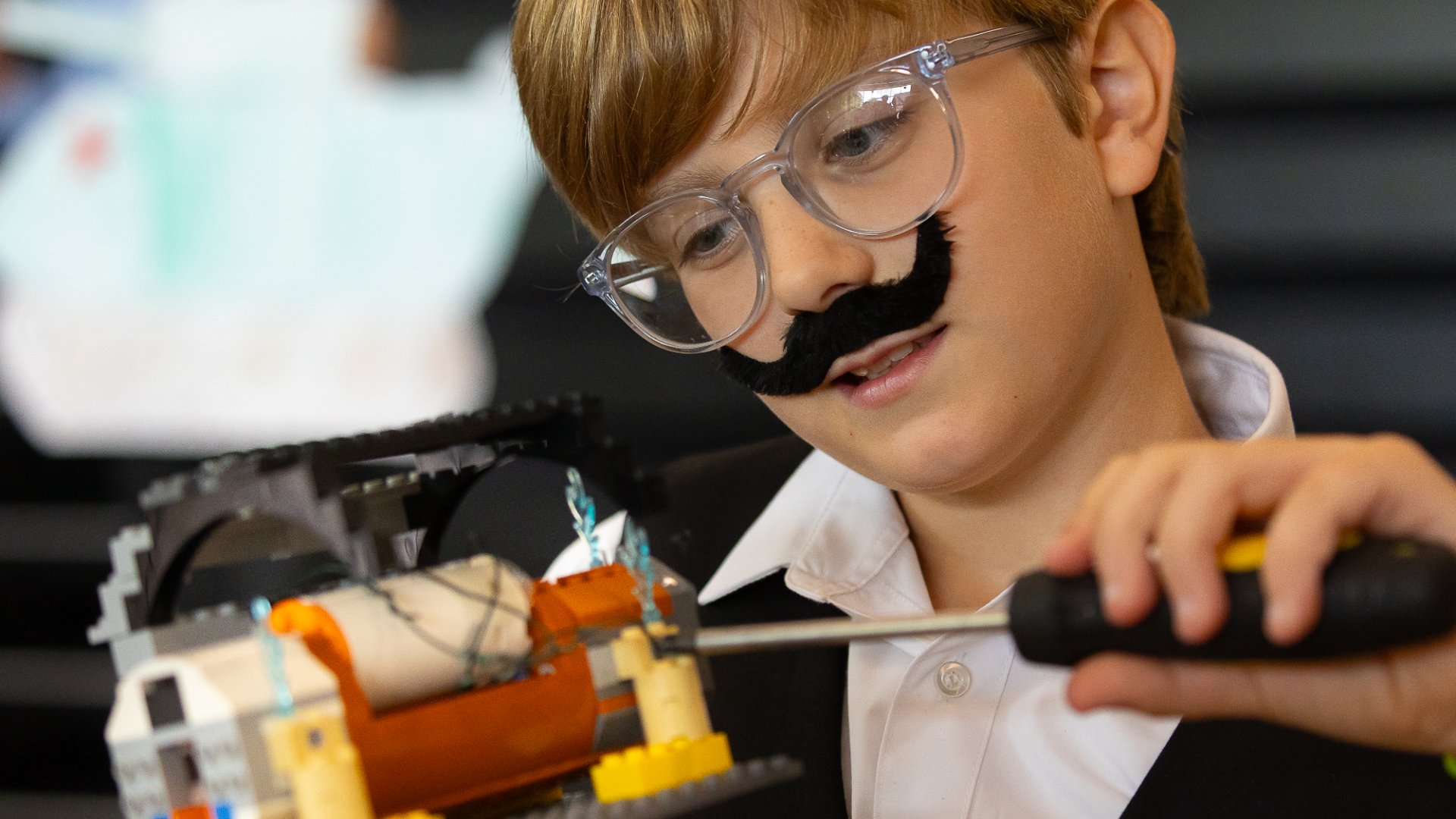
Real-Life Learning
We enable our pupils to thrive in an increasingly complex, constantly changing and unpredictable world.
To achieve optimum conditions, we incorporate real life into our curriculum. Our pupils benefit from experiences in which they can engage with real people, issues, relationships, contexts and audiences, and explore relevant problems that call for real explanations, solutions or innovations.
Shaping Future Skills
We are unafraid to make bold decisions. A collapsed timetable for Years 7 and 8 Electives on Fridays is just one example of this approach. Pupils choose and experience a range of non-curriculum based topics, including Robotics, AI, Community Outreach, Graphic Design and Forensic Science, to name a few.
As educators, we have a powerful role to play in building the foundations for pupils to gain the skills needed for the future. A solid set of academic exam results is no longer enough; soft skills play an enormous part in moulding a pupil’s future. At Hazelwood, we take an innovative approach to all areas of teaching and learning to ensure these skills are well developed and formed when our pupils leave us at the end of Year 8.
.jpg)
Industry Insights
Our Industry Insights programme offers our upper school pupils an opportunity to gain real-world exposure to a wide range of industries, helping them to explore future career paths, build confidence, and make informed choices about their future.
Pupils team up with parent volunteers from various professional sectors, such as marketing, health, the intelligence service and financial industries to tackle real-life challenges and develop creative, practical solutions. This hands-on learning experience gives our pupils an invaluable taste of working life.
A Relevant and Creative Lens
Our Sustainable Development Goals (SDG) project is an example of our innovative approach to teaching and learning, during which our pupils put their academic knowledge to use through a contemporary and creative lens.
Our entire School, from Reception to Year 8 were asked to create collaborative solutions to global, real-world challenges. Pupils researched their topics to understand the various viewpoints, assigned roles, proposed, tested, and designed potential solutions, and developed a prototype or action plan for change. They blew us away with their ingenuity and creativity.


Digital Literacy and Complex Creativity
Our innovation hub - The BOX - is a flexible, agile learning space which inspires and aids dynamic teaching and embraces the digital literacy of the future.
To enhance their digital literacy skills and prepare them for the future, pupils are equipped with a diverse range of learning tools, such as VR goggles, a Lego wall, graphic design tools, interactive projection, green screen technology, and robotics equipment.
With no rules regarding how to teach or learn, it promotes creativity and collaboration. The furniture has been designed to enable pupils to configure the space easily for any purpose; every surface can be utilised or written on. With no teacher’s desk and no fixed furniture, it heralds a way of learning that is full of investigative possibilities.
The BOX speaks the pupils’ language, giving them boldness to go in a different direction, allowing scope to explore beyond the teacher’s initial brief. It unlocks potential and complex creativity beyond traditional learning methods.

Embracing AI in Education
A widely debated hot topic in education today is how the AI revolution is going to impact our pupils’ lives tomorrow. This is not a new way of thinking for Hazelwood. We have been preparing our staff, pupils and parents for this change in teaching for some time and have been working with external consultants to build knowledge and provide guidance and training to enable our community to embrace and harmonise with this new normal.
Our innovative teaching approach at Hazelwood is paving the way for our pupils to thrive in a changing landscape, which will generate surprising and exciting outcomes, not only while at Hazelwood but also in the future as tomorrow’s leaders and innovators.
Reimagining education has never been so necessary and so exciting.
Lindie Louw
Head of Hazelwood




%20(1).jpg?command_1=resize&width_1=430&height_1=430)
